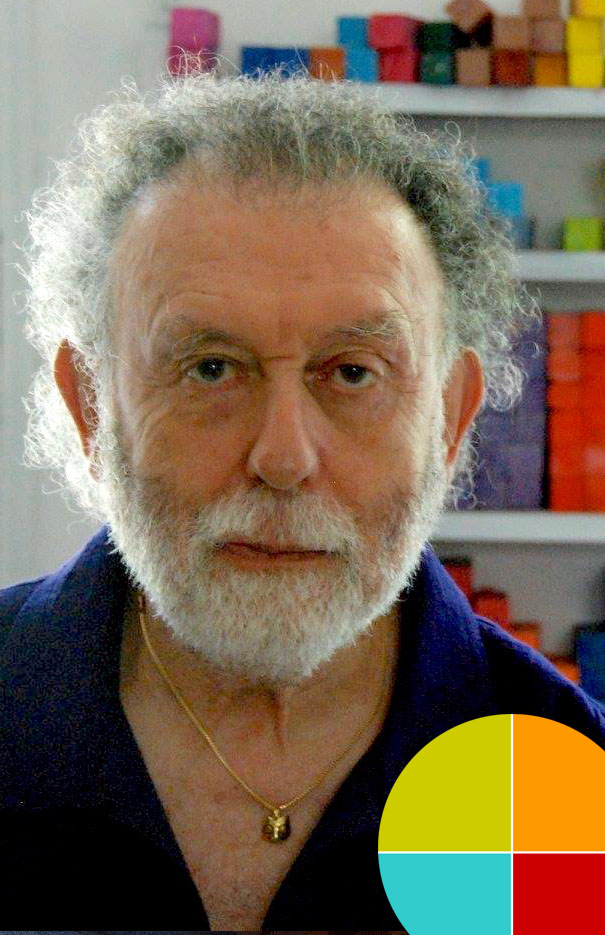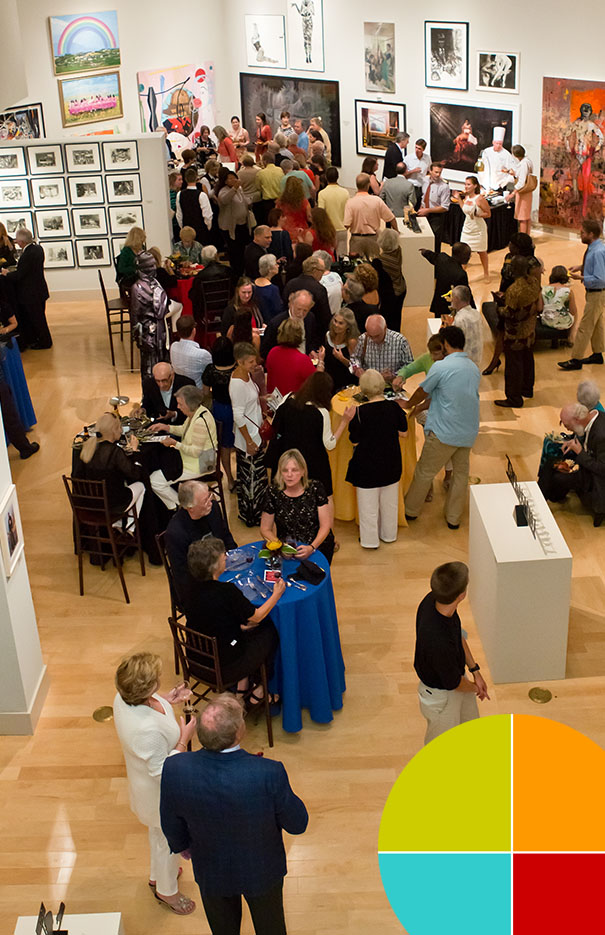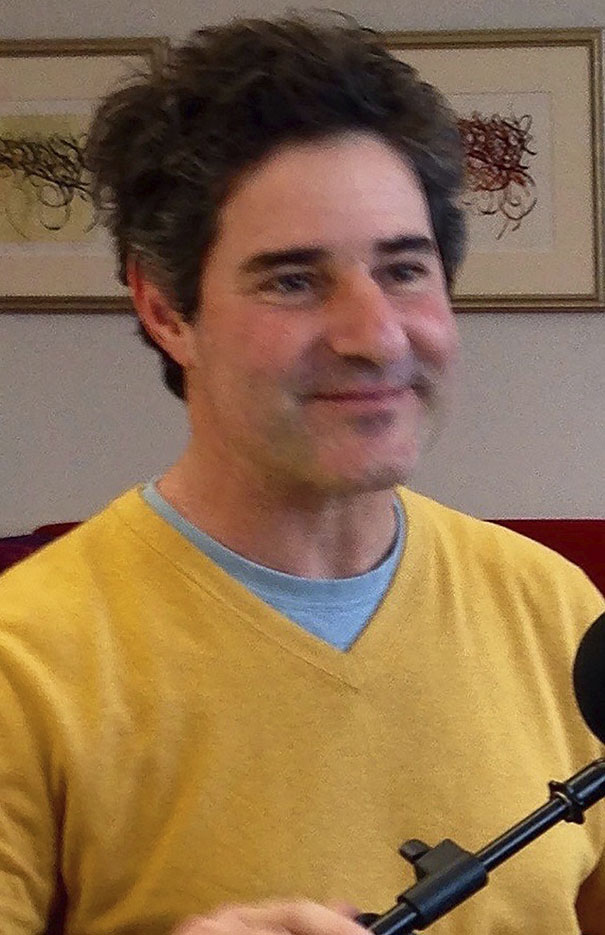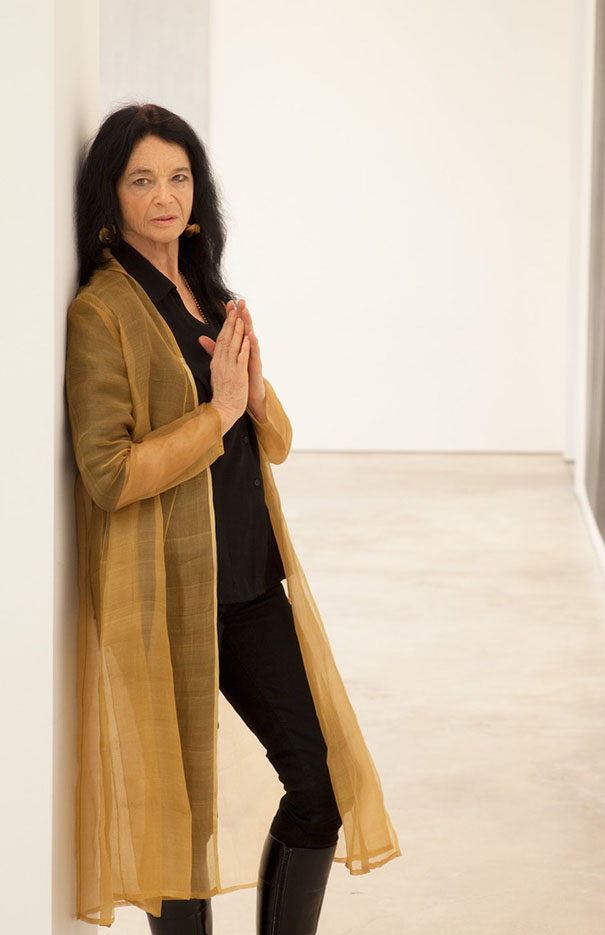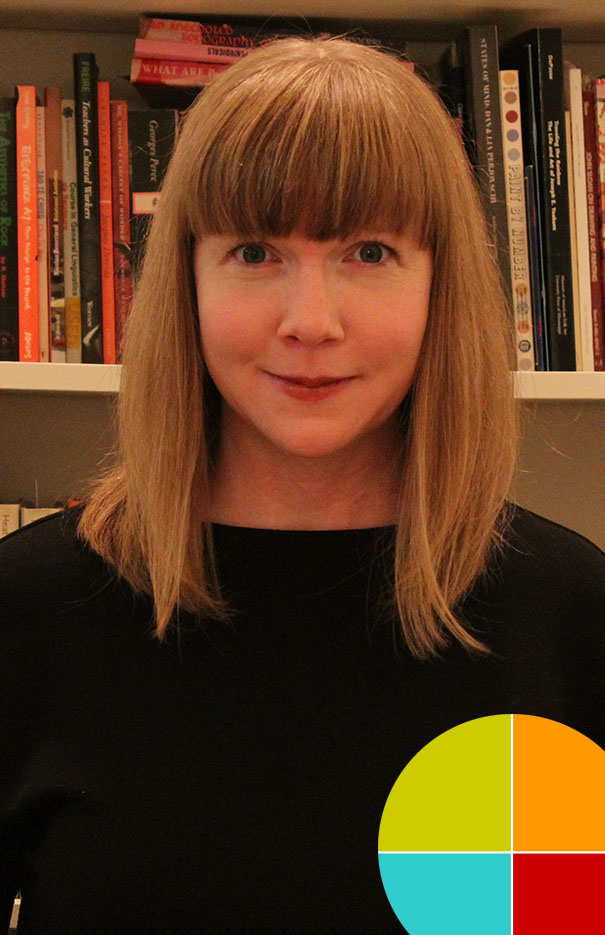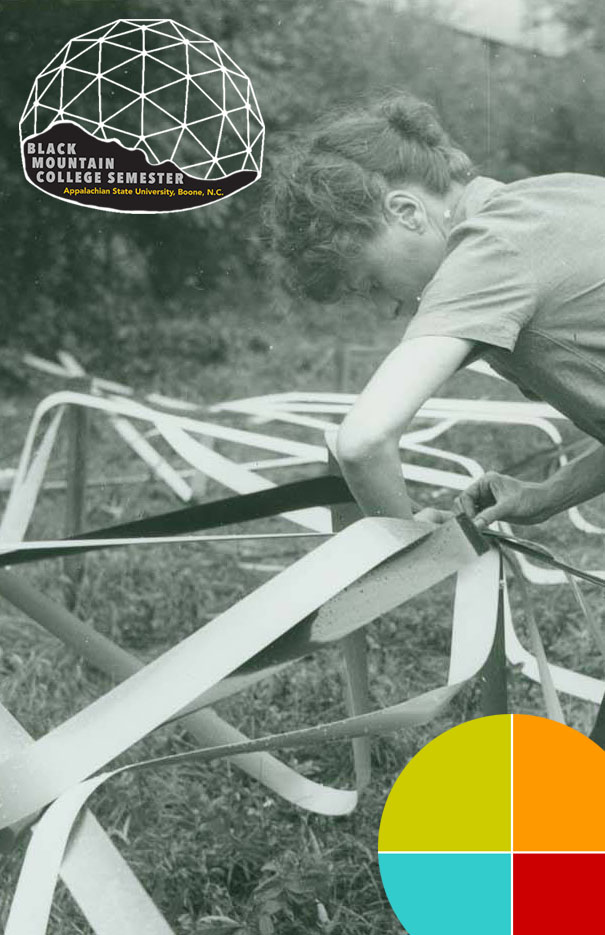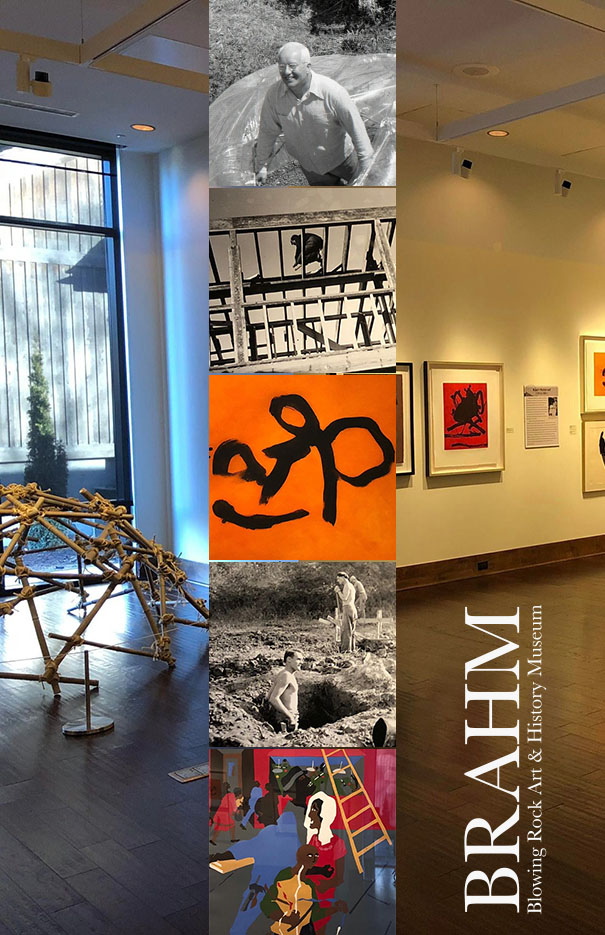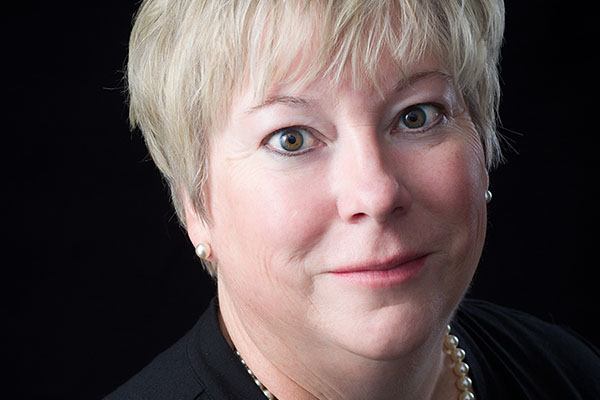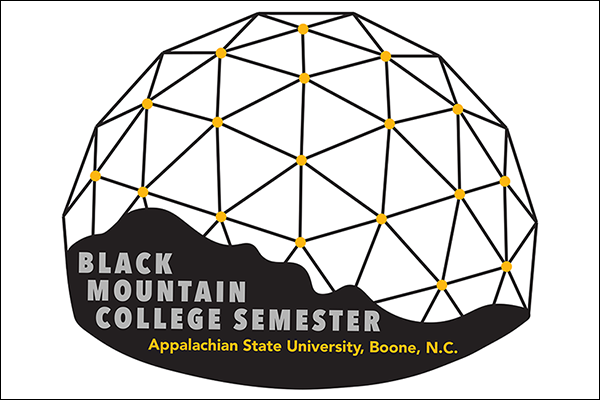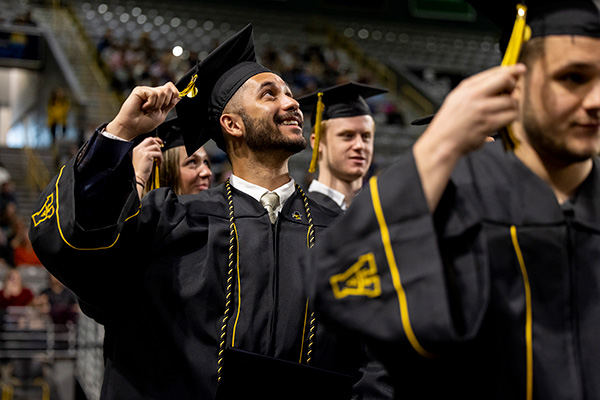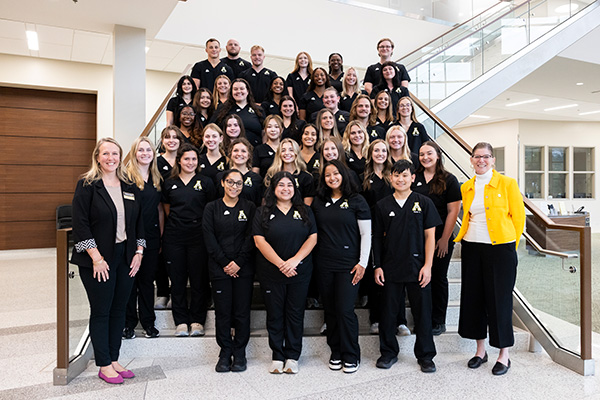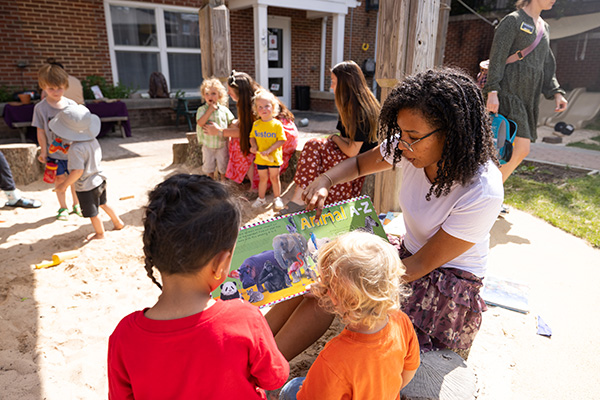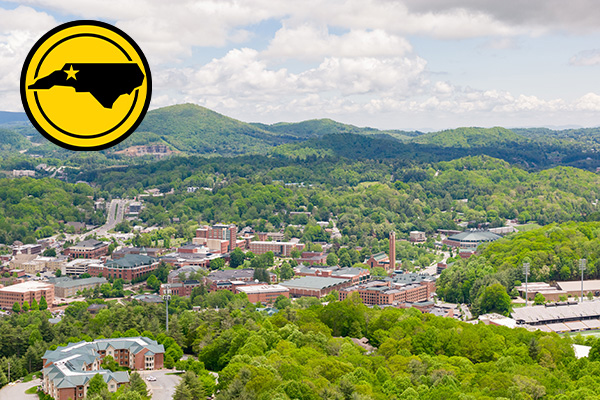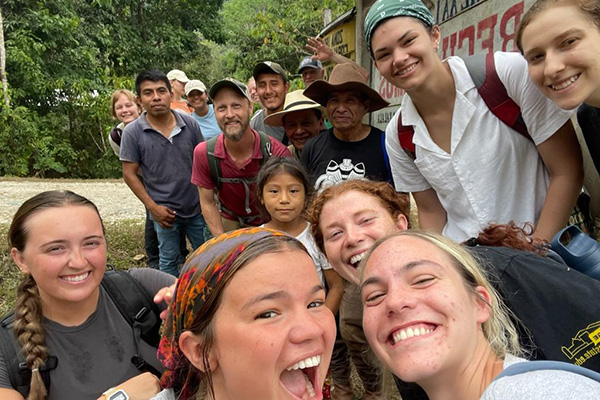BOONE, N.C. — Black Mountain College was structured differently than most educational institutions at the time. In 1933, it was founded out of a desire for a more progressive education through the use of art, hands-on learning, close student-faculty interaction and critical thought. As an early example of a liberal arts college, this model has since spread throughout the U.S. and is used at Appalachian State University today.
A liberal arts education emphasizes a well-rounded course of study in the humanities and natural, mathematical and social sciences that aims to impart a broad, general knowledge and develop intellectual capacities adaptable for numerous work and life environments in contrast to a narrowly focused professional, vocational or technical skill.
Embedded in liberal education is the ability to think critically, write and communicate well, separate fact from fiction, understand diverse perspectives and arrive at solutions to complex problems through curiosity. These are the skills employers consistently value most and seek for leaders in their fields, whether it be the humanities, sciences, etc.
At Black Mountain College, they taught students in an interdisciplinary way to solve problems, to explore and learn. Their curriculum involved interactive learning, which is one of the things Appalachian does well. The university has eight Fellows who are incorporating new pedagogies in the classroom this semester and 12 speakers visiting the area to talk about the exploration and impact that Black Mountain College’s perspective on education and art has and continues to have on all of us.
March events
Below is a list and brief explanation of each event to take place this semester at collaborating locations across the area.
Turchin Center for the Visual Arts
March 1, 2018
6 p.m.
Basil King is a poet and a prolific visual artist who was a student at Black Mountain College. He often explains his art by saying: “from the abstract to the figure, from the figure to the abstract makes an edge of exquisite distance and distance gives us our sensations.” Today he goes back and forth between painting and writing, on two different floors of his house in Brooklyn, which he shares with his wife Martha King, also a fellow BMC student.
Turchin Center for the Visual Arts
March 2, 2018
6 - 10 p.m.
There will be four exhibitions opening at the Turchin Center: “Creative Democracy: The Legacy of Black Mountain College,” “High Country Herbarium: Preserving Plants & Plant Communities in the Southern Appalachians,” “Department of Art Faculty Biennial,” “The 15th Annual Appalachian Mountain Photography Competition & Exhibition” and “Pieces of the Puzzle: Turchin Outreach Programs.”
March 15, 2018
7 p.m.
114 Belk Library and Information Commons
David Silver is an associate professor of environmental studies and urban agriculture at the University of San Francisco, where he teaches classes on food, culture, and storytelling. For the last five years, he has been researching and writing a multimedia history of the farm at Black Mountain College. During the summers of 2014 and 2015, Silver was scholar-in-residence at Hunt Library at North Carolina State University, where he worked with NCSU’s library and IT staff to design multiple video walls to accompany his talks about the farm at Black Mountain College.
Sponsored by the Hughlene Bostian Frank Visiting Writers Series in Partnership with the Black Mountain College Semester
March 22, 2018
7:30 p.m.
201B Plemmons Student Union (Table Rock)
Anne Waldman, internationally recognized and acclaimed poet, is recognized in the lineage of Whitman and Ginsberg, and in the Beat, New York School and Black Mountain trajectories of the New American Poetry. She is the author of more than 40 books. She will give a reading of her work and talk about the broad influence of BMC on poetics, as well as her relationship with legendary BMC poet and the College’s last rector, Charles Olson. As part of the Hughlene Bostian Frank Visiting Writers Series, a Craft Talk “The Creative Rhizome: Generative Practices in Art & Life” will take place at 3:30 p.m. in the Table Rock Room, Plemmons Student Union at Appalachian preceding her evening lecture at the same location at 7:30 p.m.
Turchin Center for the Visual Arts
March 28, 2018
6 p.m.
Julie Thomson is an independent scholar and curator who lives in Durham, North Carolina. She has been researching and writing about the Black Mountain College artist, Ray Johnson since 2006 and photographers who were at Black Mountain College since 2015. In 2017 she curated the exhibition, “Begin to See: The Photographers of Black Mountain College” at the Black Mountain College Museum + Arts Center. Her writing has appeared in Black Mountain College Studies and Raw Vision. She has an M.A. in Art History from the University of Massachusetts Amherst and was a Critical Studies Fellow in the Core Program, Museum of Fine Arts Houston in 2010-2011.
View the complete event schedule
Ongoing events
Jan. 12 - June 2, 2018
Turchin Center for the Visual Arts
“Creative Democracy: The Legacy of Black Mountain College” features the artwork of many of the artists who attended and taught at Black Mountain College during its colorful 24-year history. Some of those artists are still working. The exhibition looks at the legacy of the Black Mountain College artists, what the Black Mountain experience meant to them, their influences on one another and their continuing place in the art world. The exhibit showcases paintings, furniture, sculpture, clay, collages, glass, textiles, books and poetry.
Nov. 24, 2017 - April 7, 2018
Blowing Rock Art & History Museum
“Arts at the Center: A History of Black Mountain College” explores several components of the rich history of BMC and its relationship to North Carolina. John Andrew Rice, Jr. founded the College with the idea that the arts should be at the center of a liberal arts education. Some of the world’s greatest modern artists, writers, performers, musicians and even scientists served as students and faculty at Black Mountain College, including Josef & Anni Albers, Charles Olsen, Merce Cunningham, Robert Rauschenberg, Willem & Elaine de Kooning, Buckminster Fuller, M.C. Richards and many others. "Arts at the Center" shares an overview of the history and concepts behind Black Mountain College alongside historic photographs and artwork created by some of its most recognized students and faculty.
About Appalachian State University
As a premier public institution, Appalachian State University prepares students to lead purposeful lives. App State is one of 17 campuses in the University of North Carolina System, with a national reputation for innovative teaching and opening access to a high-quality, cost-effective education. The university enrolls more than 21,000 students, has a low student-to-faculty ratio and offers more than 150 undergraduate and 80 graduate majors at its Boone and Hickory campuses and through App State Online. Learn more at https://www.appstate.edu.
Q&A with Dr. Neva Specht, dean of the College of Arts and Sciences
Feb. 22, 2018
Dr. Neva Specht, dean of Appalachian’s College of Arts and Sciences, addresses the value of a liberal arts education and how Black Mountain College Semester exemplifies this worth to society.
Appalachian State University
Spring semester 2018
For Appalachian State University’s Black Mountain College (BMC) Semester in spring 2018, multiple departments across the university are collaborating with area museums and other venues to host exhibits, lectures and workshops that will highlight the importance of BMC’s influence within the Appalachian region’s creative, educational and political movements.
What do you think?
Share your feedback on this story.

